New ‘99% accurate’ antibody test approved for use across Europe
Hopes for an end to lockdowns around the world could be boosted by a new antibody test which is set to be available next month.
Antibody tests believed to be “99 per cent accurate” will be rolled out in Europe with plans for it to be widely available by the end of May.
Accurate antibody tests are likely to be a key factor in allowing countries under lockdown to restart their economies and get back to some level of normality.
People who are tested and found to have already had the virus - and therefore have the antibody in their system - could be among the first to be allowed to go back out in communities.
Global diagnostics specialists Abbott said the product showed a sensitivity greater than 99 per cent in 73 coronavirus-positive patients, 14 days after symptoms developed.
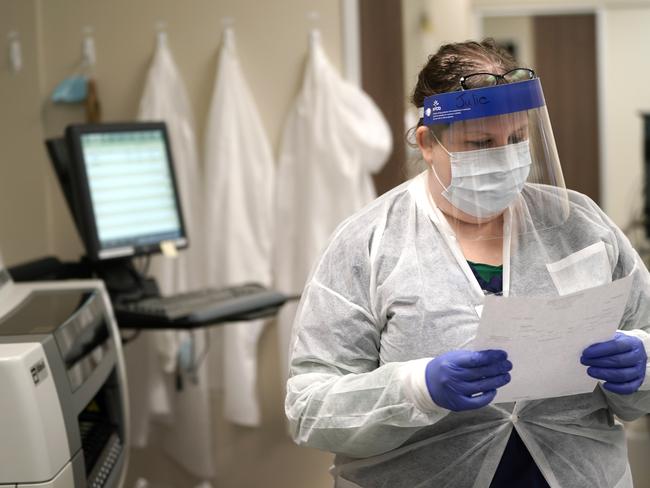
It was also more than 99 per cent accurate in identifying 1,070 negative samples.
Associate professor in cellular microbiology at the University of Reading Dr Simon Clarke told The Independent the development of the test was “very significant”.
“The test tells you whether you have ever been exposed to the virus and generated an immune response. What it can’t do is tell you whether you’re immune or not” Dr Clarke said.
“Having antibodies in and of itself does not give you protective immunity, it might do, but we don’t know that.”
Because of how new Covid-19 is, there is still uncertainty over how long immunity could last.
Dr Clarke warned the tests would be useful to understand how a virus has moved through the population.
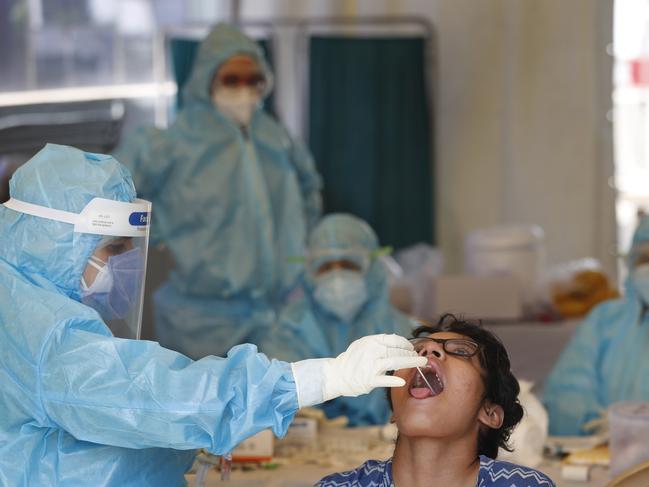
Meanwhile, pharmaceutical giant AstraZeneca has declared a vaccine could be ready by the end of the year.
The pharmaceutical giant has announced plans to bring a coronavirus vaccine being developed by the University of Oxford to market if the treatment proves effective.
AstraZeneca CEO Pascal Soriot said the compa should know by June or July whether plans to have a new vaccine submitted for regularatory approval for a new vaccine were on track.
“Our hope is that, by joining forces, we can accelerate the globalisation of a vaccine to combat the virus and protect people from the deadliest pandemic in a generation,” Mr Soriot said.
TREATMENT DRUG ‘CAN BLOCK COVID’, SAYS TOP US VIRUS EXPERT FAUCI
Leading US infectious diseases expert, White House adviser Dr Anthony Fauci, has declared that the results of new treatment trials are “quite good news” and show for the first time that COVID-19 can be “blocked” by a drug.
Medical experts in the States said the results indicated for the first time that something could be created to stop the virus.
Dr Fauci, who is renowned in America for understatement and being cautious about premature optimism about defeating the virus, was commenting on positive results from two trials of the anti-viral drug remdesivir.
The first trial, carried out by the drug’s developer Gilead Sciences, found at least 50 per cent of patients with severe COVID-19 symptoms who took it showed improvement and more than half were discharged from hospital within two weeks.
A second trial conducted by the National Institute of Allergy and Infectious Diseases showed a “clear-cut positive effect in diminishing time to recover”, Dr Fauci said.
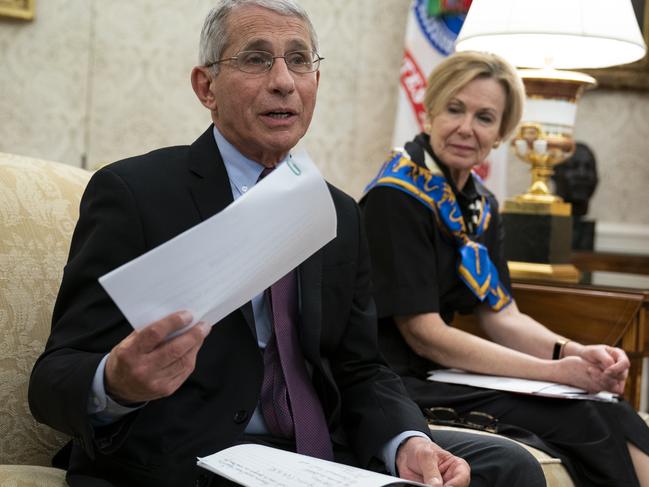
Speaking to reporters from the White House, Dr Fauci said the results were “quite good news”.
“It’s highly significant. Because what it has proven is that a drug can block this virus,” he said.
Calling the drug “very optimistic,” he said “the mortality rate trended towards being better — in the sense of less deaths — in the remdesivir group.”
“We think it’s really opening the door to the fact that we now have the capability of treating… and I can guarantee you as more people, more companies, more investigators get involved it’s going to get better and better.
“This will be the standard of care.”
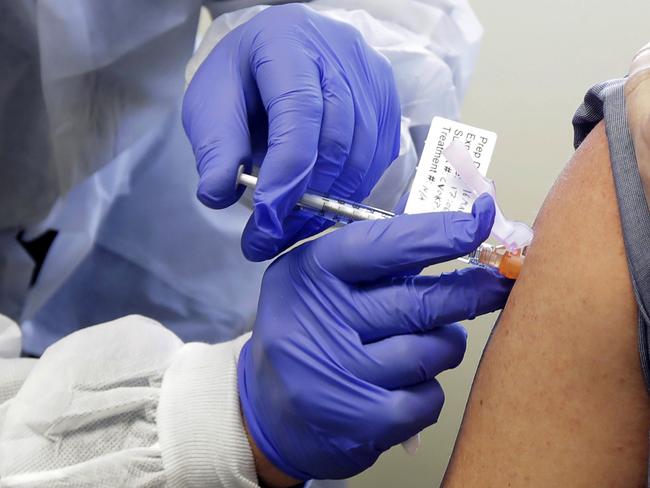
Gilead Sciences said its trial involving nearly 400 hospitalised patients using the antiviral drug remdesivir tracked one group who took the drug for five days, and another group who took it for 10 days.
They said 64.5 per cent of the patients who received the shorter treatment course were discharged, compared with 53.8 per cent of the group who were treated for 10 days. More than half of the patients in both groups were discharged from hospital within 14 days.
“These data are encouraging as they indicate that patients who received a shorter, five-day course of remdesivir experienced similar clinical improvement as patients who received a 10-day treatment course,” said Aruna Subramanian, a lead investigator of the Gilead study.
There are no proven treatments for COVID-19. US health officials say producing a vaccine to prevent the disease will take at least 12 to 18 months, making finding an effective drug treatment soon even more crucial.
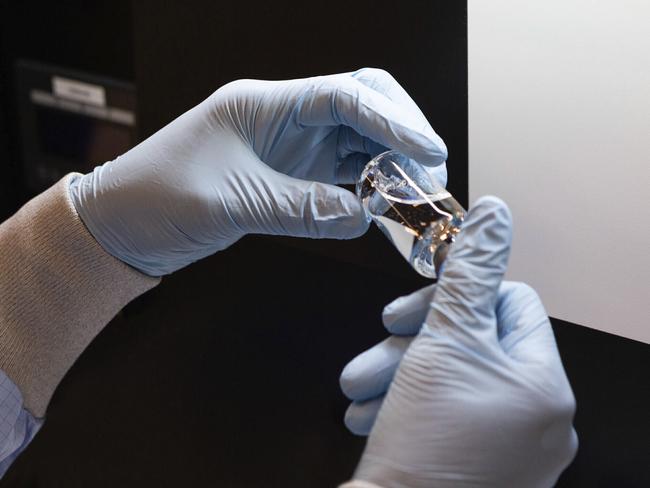
Remdesivir is given through an IV and is designed to interfere with an enzyme that reproduces viral genetic material.
In animal tests against SARS and MERS, diseases caused by similar coronaviruses, the drug helped prevent infection and reduced the severity of symptoms when given early enough in the course of illness.
But it is not yet approved for use anywhere in the world.
Meanwhile, Oxford University has started clinical trials of a coronavirus vaccine that has shown promise in rhesus monkeys.
And a German company working with US pharmaceutical giant Pfizer has begun human trials of a potential Covid-19 vaccine that could supply millions by the end of the year, according to the two firms.
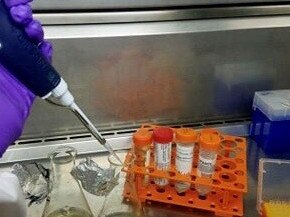
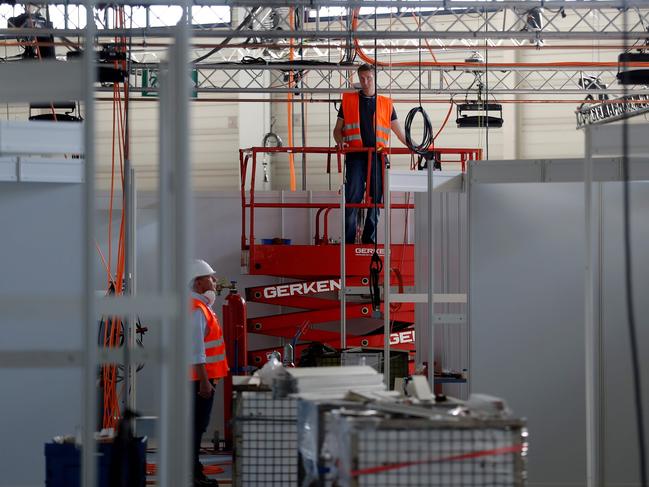
If the vaccine can effectively protect humans against COVID-19, the first doses could potentially be administered by the northern autumn, according to a blog post on the official trial’s web page.
The vaccine is made up of a weakened version of a common cold virus called an adenovirus that causes infections in chimpanzees.
But the virus has been genetically altered to make it “impossible” for the virus to grow in humans, according to a statement.
They combined the weakened adenovirus with genes that code for the coronavirus “spike” protein that COVID-19 uses to infect human cells.
Pharmaceutical companies BioNTech and Pfizer have started human trials of a possible COVID-19 vaccine.
Germany’s BioNTech said in a statement that 12 participants had been injected with the vaccine since April 23. The company is collaborating with US-based Pfizer on the trial.
Up to 200 healthy adults, aged between 18 and 55, will take part in the trial. Pfizer will trial the same vaccine in the United States when it obtains regulatory approval.
